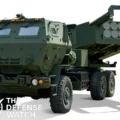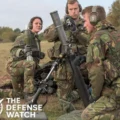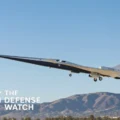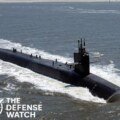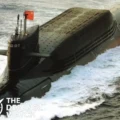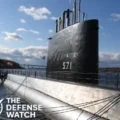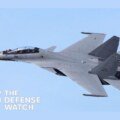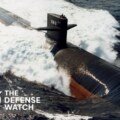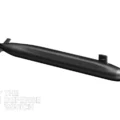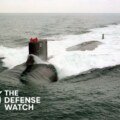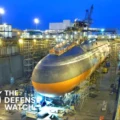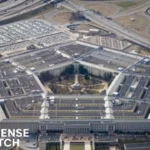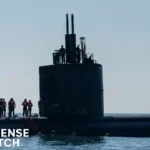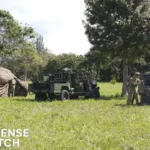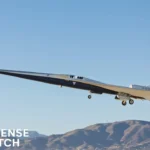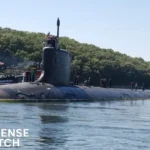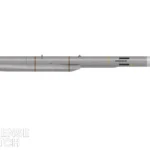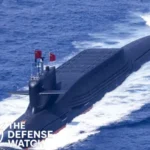Gripen E vs JAS 39 Gripen: Sweden’s Next-Gen Fighter Evolution Explained
Gripen E vs JAS 39 Gripen
The Saab Gripen family represents Sweden’s vision of affordable, high-performance air defense. The original JAS 39 Gripen, introduced in the 1990s, became a symbol of Nordic efficiency — a lightweight, multirole fighter combining agility, low operating cost, and advanced avionics. However, the modern battlefield demanded more: longer range, stronger radar, and enhanced electronic warfare capabilities. Enter the Gripen E, Saab’s next-generation evolution designed to rival top-tier fighters like the F-35 and Rafale. Built primarily for Sweden and Brazil, the Gripen E integrates state-of-the-art sensors, new avionics architecture, and greater payload flexibility. This comparison explores how the Gripen E transforms the legacy of the JAS 39 Gripen into a true 21st-century combat platform ready for the future of air warfare.
Gripen E vs JAS 39 Gripen: Key Upgrades and Differences
| Specification | Gripen E (JAS 39E) | JAS 39 Gripen (C/D Variant) |
|---|---|---|
| Engine | General Electric F414G (22,000 lbf) | Volvo RM12 (18,100 lbf) |
| Maximum Speed | Mach 2.0 | Mach 2.0 |
| Combat Radius | ~800 miles (1,300 km) | ~500 miles (800 km) |
| Avionics | New digital avionics architecture with distributed computing | Federated mission systems |
| Radar | AESA Raven ES-05 | PS-05/A Pulse-Doppler |
| EW Suite | Integrated EW system with DRFM technology | Basic RWR and ECM systems |
| Weapons Load | 10 hardpoints | 8 hardpoints |
| Maximum Takeoff Weight | 16,500 kg | 14,000 kg |
| Cockpit | Full-glass cockpit with large-area display | Conventional multi-display layout |
The Gripen E marks a significant leap in capability. Its F414G engine delivers 25% more thrust, while the AESA radar and advanced electronic warfare suite provide unmatched situational awareness in contested airspace. The new avionics core uses distributed computing, enabling faster mission updates and software upgrades — key for 5th-generation adaptability. Meanwhile, the older JAS 39C/D remains a reliable, cost-effective multirole platform for NATO partners and smaller air forces, maintaining high readiness and low lifecycle costs.
The Gripen E is not merely an upgraded JAS 39—it’s a complete generational shift designed to keep Sweden’s Air Force and its allies competitive through the 2030s. With a stronger engine, expanded payload, and advanced sensor fusion, the Gripen E delivers far greater endurance and electronic dominance than its predecessor. Its new architecture also enables faster system integration, allowing customers to tailor capabilities without relying on external vendors—a major advantage for export markets like Brazil.
The JAS 39C/D, however, still excels in affordability, ease of maintenance, and proven reliability. For nations prioritizing budget efficiency and interoperability, it remains a world-class option. In pure performance terms, the Gripen E is clearly superior—faster, smarter, and more future-proof. But both aircraft embody Saab’s design philosophy: maximum capability with minimum cost. Together, they secure Sweden’s place among the leaders in modern combat aviation.
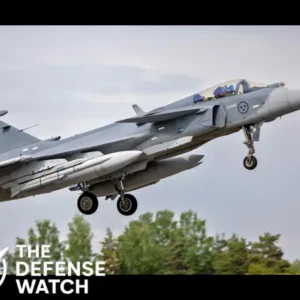
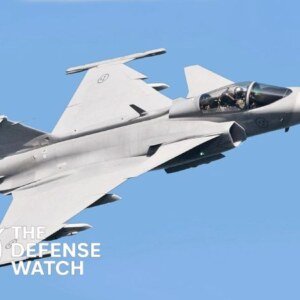
|
|
| Price | |
| Our Rating | |
| Brand | Saab Saab |
| Category | Fighter Jets Fighter Jets |
General Information
| Name | JAS 39E Gripen (Gripen E) JAS 39 Gripen |
| Manufacturer | Saab AB Saab AB |
| Country of Origin | Sweden Sweden |
| Type / Role | Multirole Fighter Jet Multirole Fighter |
| Generation | 4.5 4.5 |
| Status | In Production / Active Service In Service |
| First Flight | June 15, 2017 December 9, 1988 |
| Introduction / In Service Since | 2023 1997 |
| Number Built | 60+ (Orders in progress) 300+ |
| Operators | Sweden, Brazil Sweden, Czech Republic, Hungary, South Africa, Thailand, Brazil |
Dimensions & Structure
| Length | 15.2 m (49.8 ft) 14.1 m (46.3 ft) |
| Wingspan | 8.6 m (28.2 ft) 8.4 m (27.6 ft) |
| Height | 4.5 m (14.7 ft) 4.5 m (14.8 ft) |
| Wing Area | 30 m² 30 m² |
| Empty Weight | 8,000 kg 6,800 kg |
| Maximum Takeoff Weight (MTOW) | 16,500 kg 14,000 kg |
| Internal Weapons Bay | None None |
| External Hardpoints | 10 8–10 |
Performance
| Maximum Speed | Mach 2.0 Mach 2.0 |
| Range | 1,600 km 2,000 km (1,240 mi) with drop tanks |
| Combat Radius | 800 km 800 km (497 mi) |
| Service Ceiling | 50,000 ft (15,240 m) 50,000 ft (15,240 m) |
| Rate of Climb | 15,000 m/min 50,000 ft/min |
| Thrust-to-Weight Ratio | 0.97 0.97 |
| G Limits | +9 / -3 +9 / -3 |
Powerplant
| Engine Type | GE F414G afterburning turbofan Volvo RM12 (GE F404 derivative) |
| No. of Engines | 1 1 |
| Thrust (each) | 22,000 lbf (98 kN) 18,100 lbf |
| Thrust Vectoring | No No |
| Fuel Capacity | 3,400 kg (internal) 2,800 kg internal |
Armament
| Gun | 27 mm Mauser BK-27 cannon 1× 27 mm Mauser BK-27 cannon |
| Missiles (Air-to-Air) | Meteor, IRIS-T, AIM-9, AIM-120 AMRAAM AIM-9, AIM-120, IRIS-T, Meteor |
| Missiles (Air-to-Ground) | RBS-15, AGM-65 Maverick AGM-65, RBS-15, Brimstone |
| Bombs | Paveway II/III, JDAM, Mk 82/83/84 Paveway, Mk 82/83, JDAM |
| Hardpoints | 10 8–10 |
| Payload Capacity | 6,000 kg (13,200 lb) 5,300 kg |
Avionics & Systems
| Radar | Selex ES Raven ES-05 AESA PS-05/A or Raven ES-05 AESA |
| Radar Range | 160+ km 100+ miles |
| Electronic Warfare (EW) System | Saab Arexis Integrated EW Suite Integrated Self-Protection Suite |
| Targeting System | IRST + Litening Targeting Pod Litening / Reccelite pods |
| Helmet Display | Targo II HMD Cobra HMDS |
| Navigation | GPS/INS Hybrid GPS/INS |
| Autopilot / AI Assistance | Yes (Advanced Digital Flight Control) Digital Flight Control System |
| Communication | Link 16, Secure Datalink, SATCOM Secure Datalink & SATCOM |
Stealth & Technology
| Radar Cross Section (RCS) | Reduced, non-stealth (~1 m² class) ~1 m² |
| Stealth Features | Radar-absorbent materials and design Reduced signature design |
| Infrared Signature Reduction | Yes Partial |
| Sensor Fusion | Full 360° sensor fusion system Yes |
| Networking Capabilities | Network-Centric Warfare, Link 16, SwAF Data Link NATO Link 16 compatible |
Variants
| Special Export Versions | Brazilian Gripen F with local avionics Gripen NG (Brazil) |
Operational History
| Major Conflicts / Deployments | None (peace-time operational) NATO Baltic Air Policing, UN operations |
| Notable Operators | Sweden, Brazil Sweden, Brazil, Czech Republic |
| Combat Proven? | Not yet Limited combat use |
| Mission Types | Air Superiority, Strike, Reconnaissance, Maritime Patrol Air defense, strike, reconnaissance |
Cost & Program
| Unit Cost | $85 million (approximate) $30–60 million (variant-dependent) |
| Development Cost | $2+ billion ~$10 billion (total program) |
| Program Name | Gripen E/F Program Gripen Program |
| Funding Countries | Sweden, Brazil Sweden, Brazil |
Additional Information
| Upgrades Planned | Enhanced EW, AI-assisted avionics, new weapon integration AESA radar, AI-based systems |
| Future Replacement | Swedish next-generation stealth fighter (FCAS concept) TBD by Swedish Air Force |
| Export Restrictions | Moderate Minimal |
| Notable Achievements | Lowest operational cost in 4.5-gen class Cost-effective multirole fighter |
| Competitors | Dassault Rafale, F-16V, Tejas Mk1A, JAS 39C/D F-16V, Rafale, Tejas Mk1A |
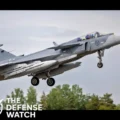
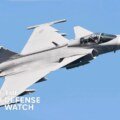
|
Disclaimer Note
The information provided on TheDefenseWatch.com is for general informational purposes only. While we strive to ensure the accuracy, completeness, and timeliness of our content regarding defense and aerospace products, technologies, and specifications, we cannot guarantee that all information is 100% accurate or up-to-date due to the evolving nature of military technology and classified data. TheDefenseWatch.com does not warrant the reliability, suitability, or availability of the information for any specific purpose. Users are advised to consult official sources, such as manufacturers, government publications, or defense agencies, for precise and verified data before making decisions based on our content. We are not affiliated with any defense manufacturers, governments, or military organizations mentioned. Opinions, reviews, and ratings reflect expert analysis but are subjective and should not be considered endorsements. TheDefenseWatch.com is not responsible for any errors, omissions, or consequences arising from the use of this website’s content. External links are provided for convenience and do not imply endorsement. TheDefenseWatch.com reserves the right to update or modify content without prior notice. By using this website, you agree to our Privacy & Cookies Policy.

